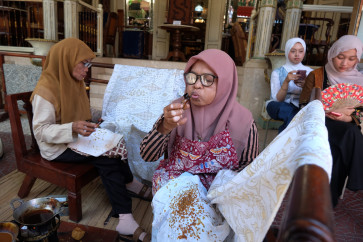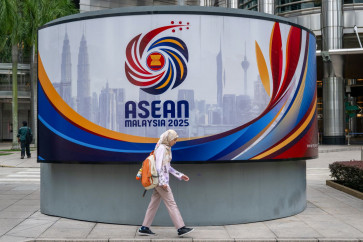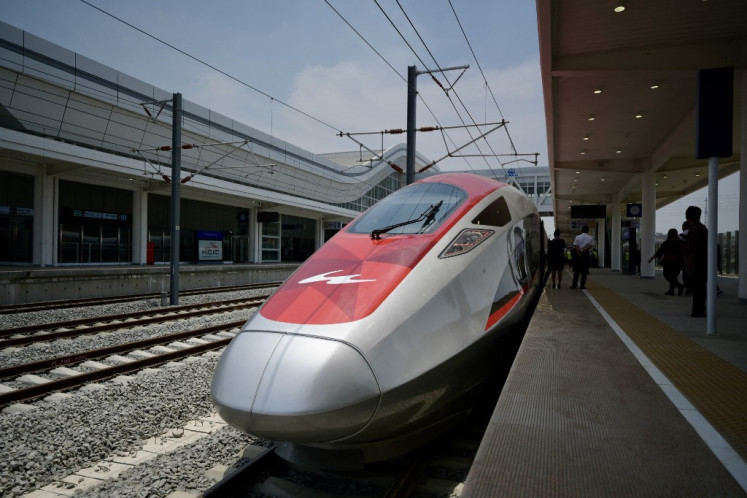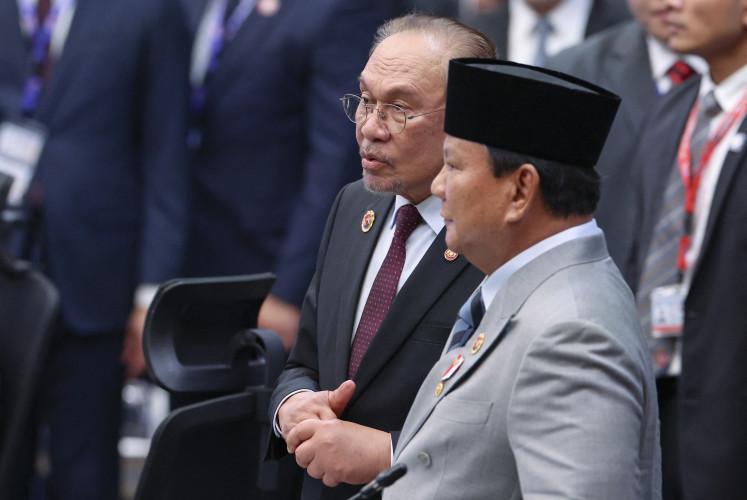Popular Reads
Top Results
Can't find what you're looking for?
View all search resultsPopular Reads
Top Results
Can't find what you're looking for?
View all search resultsBetawi or not Betawi?
Debates over native Jakartans or Betawi cultural identity are still ongoing with Betawi marginalized communities asking for official recognition as a part of Betawi
Change text size
Gift Premium Articles
to Anyone
D
ebates over native Jakartans or Betawi cultural identity are still ongoing with Betawi marginalized communities asking for official recognition as a part of Betawi.
The issue has come to surface following the city administration’s plan to open a Betawi arts center, which will facilitate only Muslim Betawi culture, known as Central Betawi.
The administration plans to refurbish a former military command post on Jl. Raya Bekasi, East Jakarta, into an arts center thanks to the idea from the Betawi Consultative Body (Bamus Betawi), a body supervising activities of the Betawi Culture Institution (LKB). The arts center is expected to open in 2012.
A historian and Betawi expert from Cina Benteng community in Sewan, Tangerang, Mona Lohanda, said that the plan was good and yet ridiculous.
“[Bamus Betawi and LKB] are very ethnocentric, demeaning other marginalized Betawi cultures, known as Betawi Pinggir, especially the Cina Benteng,” Mona told The Jakarta Post recently.
“They always use the excuse of religion that sometimes irrationally excludes us,” said Mona, who also chairs the Indonesian National Archives (ANRI).
She underlines that the Cina Benteng, along with the Betawi-Portuguese Tugu community and other non-Muslim Betawi communities were part of Betawi culture.
“It’s ridiculous that they claim Gambang Kromong of Cina Benteng, which is very Chinese, as their art, while they deny us as part of Betawi,” said the University of London master’s graduate and an author
of book The Kapitan of Batavia 1937-1942.
She added that both Bamus Betawi and LKB also have failed to preserve many of their art, including percussion instrument rebana.
Andre Juan Michiels, head of the Tugu Family Community, a marginalized Betawi-Portuguese ancestry in North Jakarta, said that, “Well yes, it’s not fair that the Betawi people [the city and Bamus] claim our music, keroncong tugu, as theirs, while they don’t recognize us as part of Betawi ethnicity.”
He added that Betawi had no single root.
“If they claimed to have their own music or traditional art, please show it to the public,” he said.
University of Indonesia cultural analyst Yasmine Zaky Shahab, who maps Betawi culture, said that Betawi, the indigenous ethnic group of Jakarta, develops from a mixture of ethic groups and eventually forms a new identity, which is different from the others.
She divides Betawi into three groups, namely Kota (Urban), Tengah (Central/on-between) and Pinggir (Rural/Marginal), based on where they lived. The Betawi Kota people live around the once-walled city of Kota in West Jakarta and Weltevreden, now the Banteng Square in Central Jakarta. The Betawi Pinggir are those living in Tangerang and Bekasi, and were strongly influenced by Chinese culture. The Betawi Tengah people are those living between the two previous groups who are mostly influenced by Arab culture.
Many influences mixing together in to the Betawi culture is the reason people see that some Betawi people have a strong Islamic faith, while some others have leanings toward Chinese traditions, Yasmine says.
A Betawi expert, Bondan Kanumoyoso, said that, “Betawi is an invented culture, along with its music and traditional art”.
He said that both Betawi and these marginalized cultural communities often did not realize that they had similarities to one and another, which made them one in terms of culture.
“Betawi identity was not merely united by religion. Betawi is often perceived as a Muslim ethnic just because Islam is a factor that unites them more and has eventually changed their identity,” he said.
He urged the city administration Betawi Consultative Body not to use Islam as a reason to deny other Betawi communities. (ipa)










